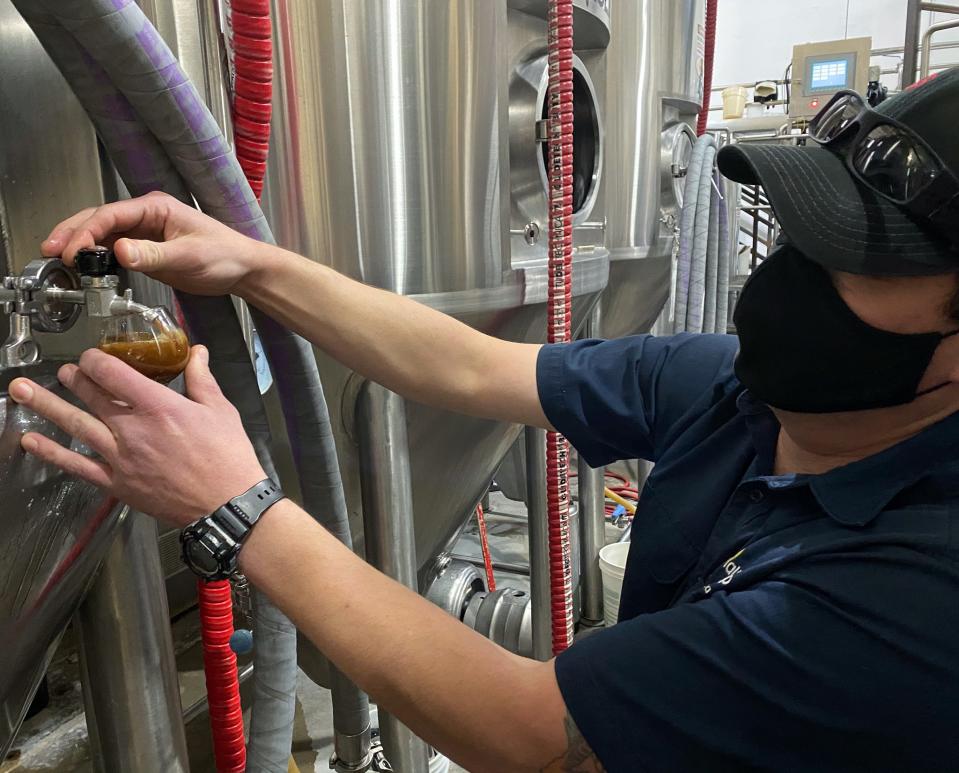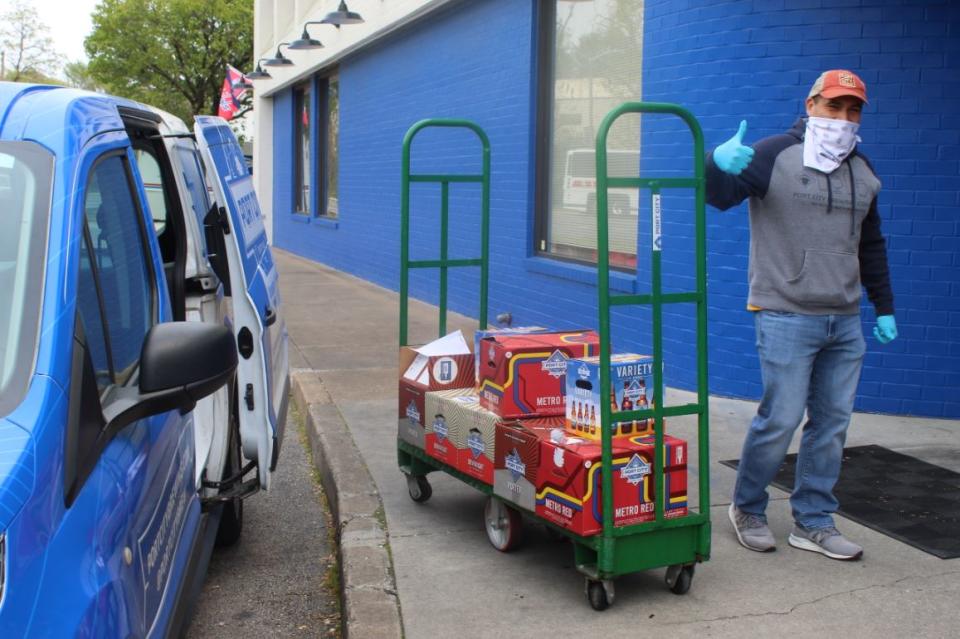Breweries push Congress to make 2017 tax cut permanent
Breweries, wineries and distilleries could soon see their taxes go up, if Congress doesn’t extend a 2017 tax break that’s set to expire at the end of the year. Brewers say a tax hike could be devastating for an industry that’s already been hammered by the coronavirus pandemic.
The temporary tax break was part of the GOP tax cuts passed during President Trump’s first year in office.
For U.S. breweries making fewer than 2 million barrels per year, the changes reduced the federal excise tax to $3.50 per barrel from $7.00 per barrel on the first 60,000 barrels each year. For larger brewers, the tax is now $16 per barrel on the first six million barrels, compared to $18 per barrel before the tax overhaul.
If Congress doesn’t act, the taxes will jump on Jan. 1.
“Sales are already hurting. We're doing whatever we can to cut costs, to conserve cash and to keep the doors open. And if our excise tax rates double overnight, it will absolutely be disastrous for us as well as the thousands of other small craft breweries in the United States,” said Bill Butcher, founder of Port City Brewing Co in Alexandria, Va.

Todd Baldwin, owner of Red Leg Brewing Company in Colorado Springs, Colo., told Yahoo Finance he received a Paycheck Protection Program loan in the spring and has avoided laying off or furloughing any workers. He’s in the midst of an expansion that started a year ago, but now he’s also bracing for the upcoming tax hike — made even more difficult by Congress’s inability to come to a deal on stimulus.
“There is no PPP loan this time through,” said Baldwin. “Everyone has to go to the reserves and now we're blowing through reserves as fast as we can.”
Butcher, Baldwin and many others in the industry have had to close their indoor tasting rooms due to the pandemic. Port City Brewing typically sells its beer to bars and restaurants across the D.C. area, but that revenue stream — typically 57% of his business — has dried up, too.
“Fortunately we do have distribution in grocery stores and retail, and that business has been healthy,” said Butcher. “That’s been what has sustained though the pandemic.”
While Baldwin said demand in liquor stores has remained strong through the pandemic, he’s also seeing more and more breweries shift from selling in tasting rooms to packaging for stores.
“You have an entire new base of competitors who are stepping up into this level,” said Baldwin. “There’s this unique demand on us right now, where we have to keep our employees employed, but we're not making as much money, because a large piece of our revenue — which is in the tasting room — is gone.”

Craft brewery owners across the country say a 100% increase in the federal excise tax would only make their pandemic problems worse.
Butcher told Yahoo Finance he used savings from the excise tax reduction to offer retirement benefits to his full-time employees. If taxes go up, he says he would likely have to cut those benefits.
“It's been very, very popular with our full-time people. It's also been a great recruitment tool when we need to hire a new brewer,” said Butcher. “It's been a great benefit for us to draw the talent that we need to continue to grow our business.”
While Butcher says his business could probably make it through a tax hike, smaller breweries might not be able to survive.
“You can't go doubling someone's tax rates in the middle of the biggest economic crisis that this country has seen in generations,” said Butcher.
Baldwin warned if the tax hike goes into effect, beer lovers could see prices jump at their local breweries.
“It’s not going to impact one or two breweries here or there in certain states,” said Baldwin. “It's definitely going to be felt by most of America.”
There is a bipartisan push to extend the lower rates. Seventy-seven senators and 351 representatives have signed on to the Craft Beverage Modernization and Tax Reform Act, which would make the tax cuts permanent. This week, half of the Senate signed a letter to Majority Leader Mitch McConnell and Minority Leader Chuck Schumer, urging them to include the bill in any legislative package before the end of the year.
“In addition to creating jobs in every state and Congressional district, beverage alcohol producers are critical partners to our farmers and agriculture producers, the tourism industry, the manufacturing sector, and the hospitality industry, including restaurants, bars, and other on-premise establishments,” the lawmakers wrote. “Together, these producers support over four million jobs across the country and contribute immensely to the vibrancy of our economy and communities.”
Jessica Smith is a reporter for Yahoo Finance based in Washington, D.C. Follow her on Twitter at @JessicaASmith8.
Read more:
Coronavirus stimulus: Lawmakers unveil $908 billion bipartisan relief proposal
Coronavirus stimulus: Democratic senators push to bring back $600 weekly unemployment boost
Key Democrat: Finding agreement on taxes will require 'creative thinking'
‘A perfect storm' as several coronavirus relief programs set to expire next month
Key House Democrat 'delighted' by Biden nomination of Yellen for Treasury secretary

 Yahoo Movies
Yahoo Movies 
